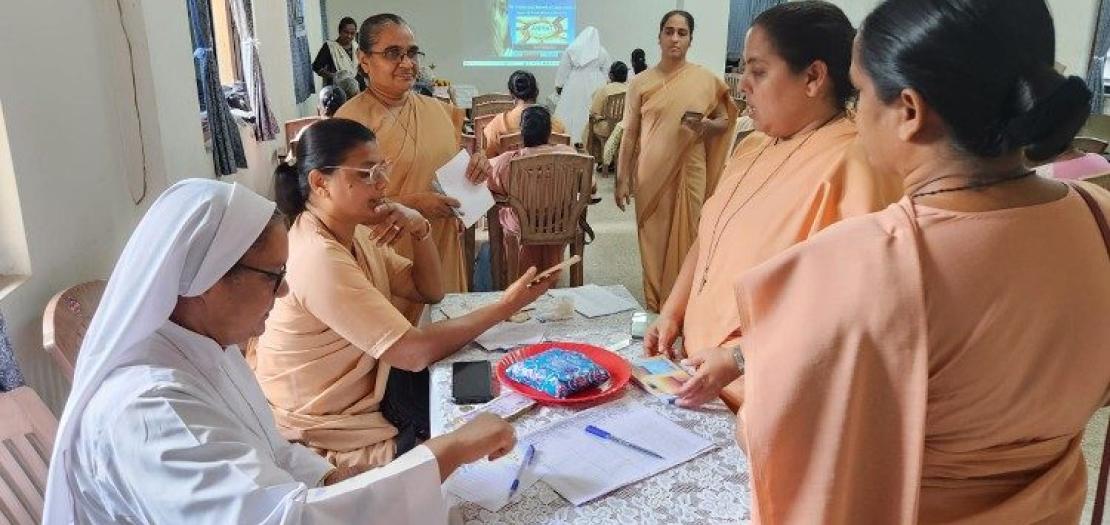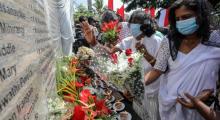Issued by the Catholic Center for Studies and Media - Jordan. Editor-in-chief Fr. Rif'at Bader - موقع أبونا abouna.org

Religious sisters take part in group discussions during the Goa Regional Assembly of the Amrat Talitha Kum India Network on August 13
Held at the Jesuit Provincial House in Panjim, the half-day assembly of the Amrat Talitha Kum India Network centered on the theme “Invisible Chains – Human Trafficking and Violation of Human Rights.”
It highlighted the “subtle but devastating psychological and social manipulation” used by traffickers and sought to strengthen local Church efforts against exploitation.
AMRAT Talitha Kum India is part of the Talitha Kum International Network of Consecrated Life Against Trafficking in Persons.
The network works to prevent exploitation, protect and promote human dignity, and restore the rights of marginalized people in collaboration with organizations, institutions, and individuals.
The event opened with a prayer dance, followed by a symbolic lamp-lighting ceremony led by national and regional leaders, including President Sr. Meera RGS and Executive Member Sr. Crina, SFN.
The ceremony symbolized the mission to dispel the darkness of ignorance, fear, and injustice.
Sr. Dhanam, HCM, secretary of the Goa region, set the tone for the day, underscoring the mission to “revive hope” and eradicate “all forms of modern slavery, from human trafficking to the exploitation of daily wage workers.”
She urged congregations to address the “silent suffering happening in Goa” with courage, invoking the biblical call: “I heard the cry of my people, says the Lord.”
Sudiksha S. Naik, from the Anti-Human Trafficking Unit, detailed the various forms of modern slavery, including forced labour, sexual exploitation, and organ harvesting.
In her keynote address, Sr. Meera urged participants to be “cunning as a serpent and calm as a dove” when handling sensitive trafficking cases.
She questioned the limited engagement in Goa’s anti-trafficking efforts and issued “a strong call for networking, collaboration, and active participation.”
Participants later broke into deanery-based groups to discuss trafficking challenges in their respective areas and develop localized action plans.
Discussions focused on preventing the migration of vulnerable individuals into exploitative jobs and building community resilience.
Regional coordinator Sr. Myra, HC, presented a report encouraging members to make use of AMRAT Talitha Kum’s resources for educational and prevention programs.
The assembly, moderated by Sr. Lourenca, FC, ended with a vote of thanks and a summary of the regional report, reaffirming the collective commitment to end human trafficking.







